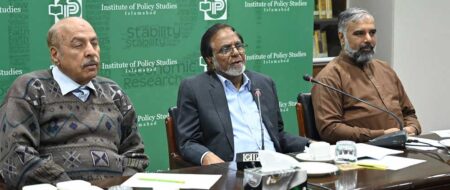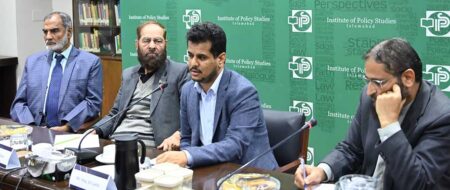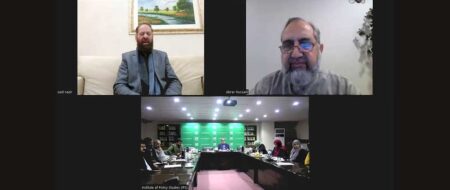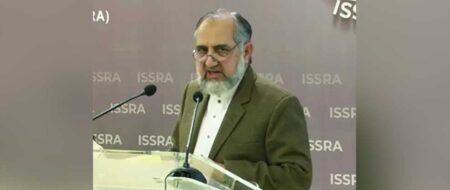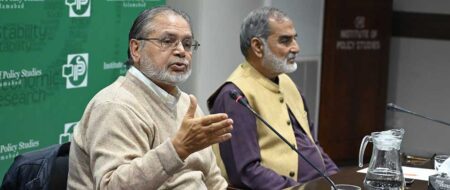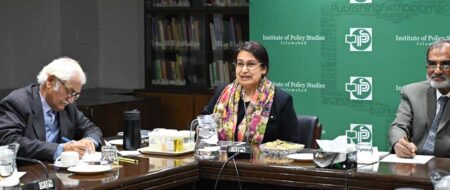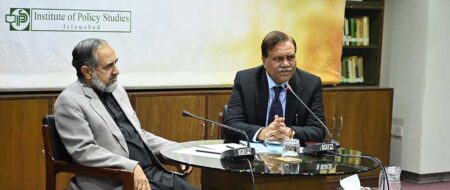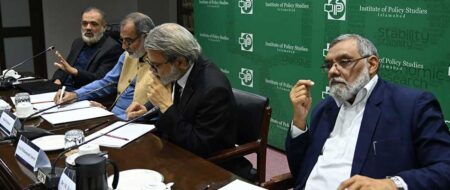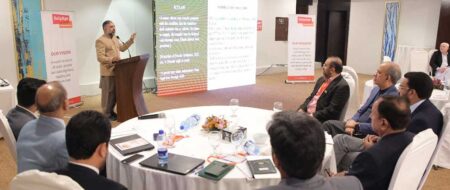Pakistan has neutralised India’s Cold Start Doctrine
Prominent scholar and strategist, Dr. Shireen M. Mazari says, Pakistan has successfully neutralised India’s Cold Start Doctrine by testing tactical nuclear missile, Naser.
Prominent scholar and strategist, Dr. Shireen M. Mazari says, Pakistan has successfully neutralised India’s Cold Start Doctrine by testing tactical nuclear missile, Naser.
She said this while delivering a lecture on Emerging Nuclear Scenario, at Institute of Policy Studies Wednesday.
Dr. Mazari said that the country had missed some opportunities yet it had used its options quite fairly to maintain deterrence and credibility. Recently tested Naser missile with 60 KM range was a “necessary as well as well-timed move” and demonstrates that Pakistan has acquired the technology and capability to counter India’s ‘cold start’ and ‘second strike’. Contrary to what some US sections perceive, Naser was not a battlefield weapon and does not signal a shift from deterrence towards war mode, she said.

She also saw the development of Pakistan’s own cruise missiles as ‘critical’ in view of India’s development of missile defense capability. She iterated that Pakistan should stick to its principles of “minimum credible deterrence” and “strategic restraint” and continue acting responsibly but more cautiously and wisely.
She said Pakistan’s nuclear doctrine is based on maintaining credible minimum deterrence. Pakistan over the years has been able to maintain the deterrence and is determined to offset any development in India that could disturb the nuclear balance between the two countries. Pakistan also believes in agreement with India on Strategic Restraint Regime. However India has been reluctant for such a regime in both nuclear and conventional areas.
 |
 |
Dr. Mazari proposed that Pakistan and India can join hands in the setting up of joint nuclear power projects on their mutual borders. Strategic and security experts attending the seminar found the proposal as quite innovative but most of them thought it was not possible in the current political and strategic scenario.
The participants also said that the proposal for joint nuclear power plants would not be acceptable to India and it was almost bound to get a cold Indian shoulder like other Pakistani suggestions for lasting peace in the region. It was also observed that confidence building mechanisms including trade could not work until real progress was made on the core issue of Kashmir.
 |
 |
 |
 |
 |
Dr. Mazari observed that the nuclear arms control and disarmament area has always been premised on two parallel tracks: one being the “US-favoured discriminatory approach” embodied also in non-proliferation treaty (NPT) and now taking shape of fissile material cutoff treaty (FMCT) and also manifested in international agreements like CTBT and certain IAEA initiatives.
Referring to the most recent and third nuclear test by North Korea, she said that such actions could be taken with almost impunity because the most significant treaty in the current international setting with respect to nuclear capability, NPT, is being undermined by its proponents. In this respect she highlighted and criticized US-India nuclear deal. Following the precedent set by US, France and Britain too have signed such deals with India in contravention of their NPT obligations.
 |
 |
 |
 |
 |
She was of the view that the demands from Pakistan and India to sign NPT were “untenable” because the two nuclear states would not give up their capability. She suggested proactive diplomacy and concerted effort for an additional protocol to the NPT that would recognize the two nations as nuclear weapon state parties.
On FMCT, she said that Pakistan could not afford to agree to it because no other nation except Pakistan would suffer if it came in operation. She lauded the policy of the government of Pakistan for consistently resisting “yet another discriminatory measure” in the field of nuclear energy.



